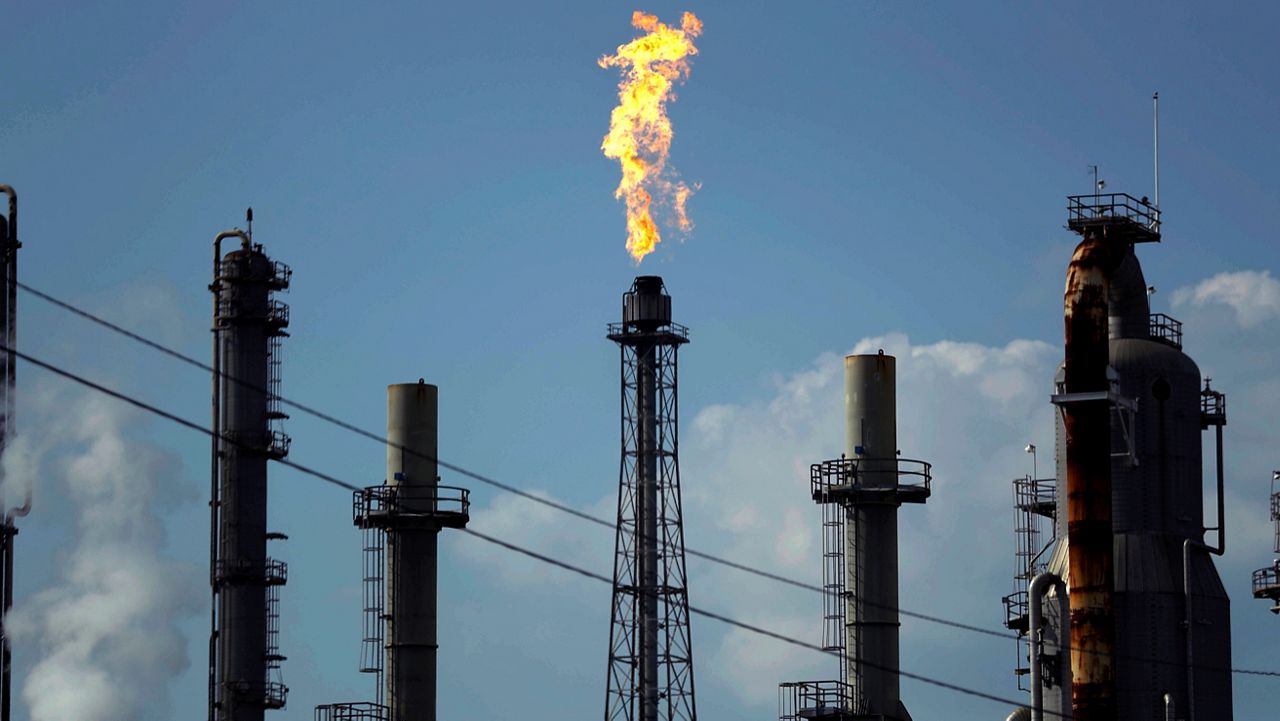If you’re paying more at the pump, extreme heat is partially to blame.
Multiple days of temperatures exceeding 100 degrees in the Southern states are affecting oil refineries in Texas and Louisiana, diminishing gas supplies and increasing prices.
Nationally, gas prices are up 13 cents compared with a week ago, according to the price-tracking website GasBuddy.
“Refineries are outdoors and exposed to the elements,” GasBuddy head of petroleum analysis Patrick De Haan told Spectrum News. “A lot of the equipment at refineries is designed for normal temperatures, not extremes.”
Four of the nation’s largest refineries are in Texas, including Port Arthur, Galveston, Baytown and Beaumont along the Gulf Coast.
Temperatures in that area have been hovering around 100 for more than a week with no end in sight.
Another three are in Louisiana, including Garyville, Baton Rouge and Lake Charles. The extreme heat wave in that area is among the worst on record.
About half of the nation’s refining capacity is in Louisiana and Texas, supplying gas to every part of the country except California and Colorado. Six of the refineries in those states are experiencing heat-related outages, De Haan said.
The problems are likely to persist for a couple more weeks, keeping gas prices high.
“There are some unplanned outages affecting U.S. and global refineries at the moment,” a spokesperson for the American Fuel and Petrochemical Manufacturers told Spectrum News.
Heat-related power outages, storms and lightning strikes are among several causes that have led to refinery outages this summer.
“Our U.S. facilities, collectively, have been operating full-out this summer to keep our market well supplied with gasoline, diesel and jet fuel for the heavy travel season,” the spokesperson said. “After more than a year of sustained high utilization, equipment sometimes needs to be idled on short notice for repairs.”
De Haan warned that further outages are likely later this summer as exceptionally warm water off the coast of Florida is setting the stage for hurricanes.
“Hurricanes disrupt refining because of wind and rain, and that could exacerbate what we’re already experiencing,” he said.
Hurricane season began June 1 and runs through Nov. 30, but it peaks mid-August to mid-September.
Oil prices are also adding pressure to gas prices. They are now at their highest level since April.
In June, the U.S. Energy Information Administration predicted lower-than-previously expected global oil production because of OPEC announcing it will continue to cut crude oil production through 2024.
In July, Saudi Arabia announced an additional oil production cut of one million barrels per day.
“With OPEC muddying the waters by cutting production, prices may remain elevated going into the fall,” De Haan said. “We may see a little break once we get beyond the prime of hurricane season. We should see prices declining in October or November.”



